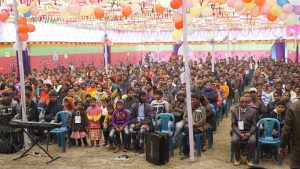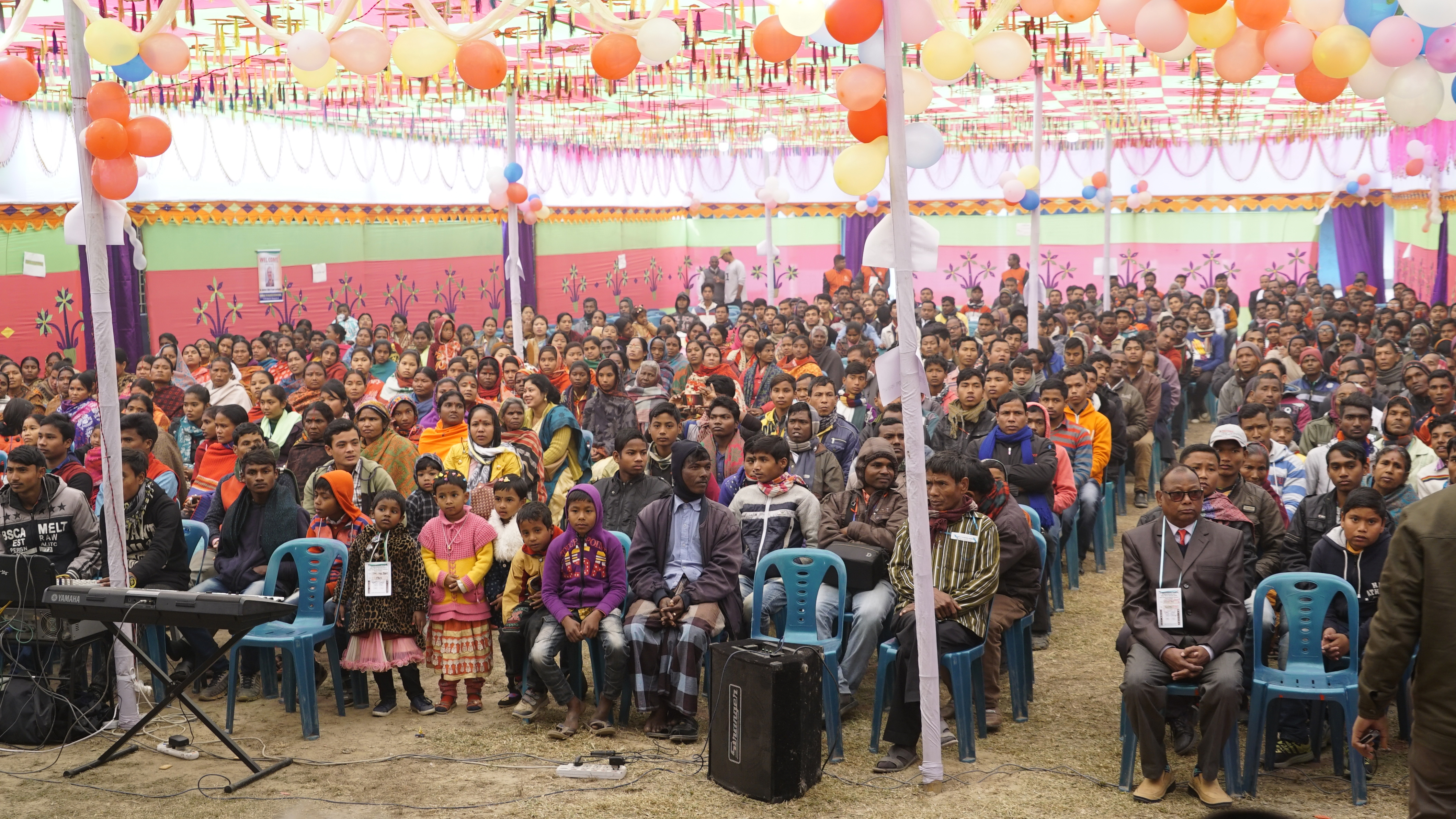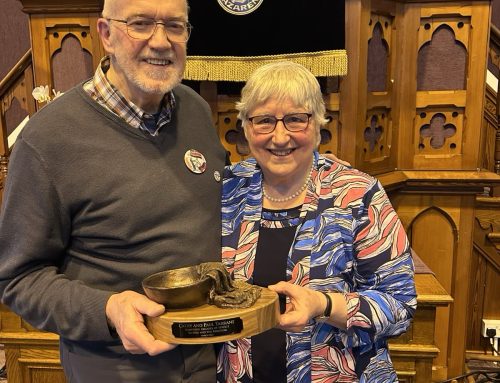 The roughly 500 people attending the Bangladesh North District Assembly were asked to move to different parts of the building, depending on what village they were from. There was gentle confusion as people tried to sort out which area they needed to move to.
The roughly 500 people attending the Bangladesh North District Assembly were asked to move to different parts of the building, depending on what village they were from. There was gentle confusion as people tried to sort out which area they needed to move to.
The scene unfolded 30 January, just after the North District received official approval from the denomination’s Board of General Superintendents to create two new districts due to rapid church growth over the past eight years. Those in attendance were asked to move to the space where their new district was gathered.
“There was a sense of excitement as people voted for the approval of the districts being divided,” said Annemarie Snijders, mobilization coordinator for the Eurasia Region. “This felt like a special recognition of what God was doing in Bangladesh.”
Since 2010, the Bangladesh Church of the Nazarene has multiplied from one national district to five.
In the last eight years, the North District had grown beyond the ability of one superintendent to effectively support all the congregations, said Milon P.*, national coordinator for JESUS Film and child development ministries.
“A second reason was because creating three districts from one will allow the mother district, as well as the new districts, to expand to new areas where there is not a church yet,” added Trino Jara, field strategy coordinator for the church in South Asia.
Congratulating the district for its missional vision, General Superintendent Dr. Eugenio Duarte announced the approval.
“You will not be weaker, you will be stronger,” Duarte said to the assembly. “Those two new districts will belong to the same church, and all three districts will in some ways do some things together.”
Rev. Anjon Moses B.* formerly the superintendent (DS) for the North District, has been appointed DS for Rangpur District, and Rev. Puren R.* appointed for Thakurgaon District.
“My aim as DS is to strengthen our churches, care for the leadership for the future church and preach the gospel in the area,” Puren said.
“God called me to serve His Kingdom as DS and I am happy for that,” Anjon said. “My father was a pastor and I am also serving as a pastor for many years. I will serve wherever I am called.”
Both districts are being started as “phase II” which means they will receive some financial support, with a planned decrease in amount until the district is fully self-sustaining in three years, said Jara.
Started in 1993, the Church of the Nazarene Bangladesh has rapidly expanded by following the holistic ministry model of Jesus Christ – sharing His love with people by meeting their physical, emotional and spiritual needs together.
From the beginning, compassionate ministries and JESUS Film evangelism and discipleship have been core elements of demonstrating God’s love for people. Congregations not only taught people about God from the Bible and formed local worshipping communities, they also participated in disaster relief efforts; established food security projects; organized women into empowering self-help groups in which they pooled funds to start small businesses; set up child-focused community development centers; and much more.
Over the years, dozens of JESUS Film teams showed the gospel in the Bangladeshi language to hundreds of thousands of people and established discipleship groups, many of which have become organized churches that are now engaged in mission to their communities and nation.
“Life in Bangladesh is tough,” said Eurasia Regional Director Arthur Snijders, reflecting on his impressions during his first visit to the country six years ago. “They were so grateful that they had heard the gospel, and they were living now for Jesus. I came away from that time very much aware that Christ brings hope in very dire circumstances and He also brings gratitude and joy in places where I never expected them.”
Leaders of the church in Bangladesh have a vision to plant a church in every village in the country, which boasts a population of nearly 163 million.
“The districts are strong in evangelism and church planting,” said Milon P. “At the same time we need that theological depth and pastors’ training. There is a lot of challenge because of the socioeconomic background of the people. They’re behind other Bangladeshi people in terms of literacy, economic development and social development because most of the churches in that [area] are indigenous groups of people.”
To meet this challenge, the church must strengthen and expand its theological education, Snijders said.
“Having all these new churches and Nazarenes calls for discipleship and good pastoring, and good teaching. That is a challenge that has been with Bangladesh for quite some time. With the multiplication, the need for education and equipment also multiplies.
“I don’t think we have solved it yet, but my prayer would be that the Lord would not only call pastors, but that there would be a place where there would be more qualified teachers in Bangladesh, and we would have more schools and learning centers to serve the church.”
*Full names omitted for security reasons.




